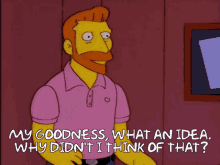“problem”?
worldnews
Welcome! This community is constantly upgrading and is a current work in progress. Please stay tuned.
/c/[email protected] strives for high-quality standards on the latest world events.
The basis of these standards comes from the MBFC, which uses an aggregate of methodologies, including the IFCN and World Freedom Indices, to rate the Bias and Factual Reporting of News.
These are non-profit organisations with full transparency of their funding and structure. Likewise, this community is also transparent – Please feel free to question its staff and the overall content of this community.
Does your post fit the standards? Check this thread!
Rules:
Disallowed submissions
-
~~US internal news/US politics~~ (Allowed while the Fediverse grows)
-
Editorialised titles
-
Editorials, opinions, analysis
-
Feature stories
-
Non-English articles
-
Images, videos or audio clips -- General Social media posts (Only Allowed during ongoing world events)
-
Petitions, advocacy, surveys
-
All-caps words in titles
-
Blogs
-
Old news (≥ 1-Month-old) articles
-
Memes/GIFs
-
Unlabeled NSFW images/videos
-
URL shorteners
-
Paywalls (Copy-Pasting the Article content or bypassing the paywall is allowed)
Commenters will receive one public warning with only one strike if violating any of the following rules:
-
Celebrating death/Advocating violence
-
Genocide denial/downplaying genocide
-
Disinformation/misinformation
-
Health disinformation/misinformation
-
Bigotry / Other offensive content Personal attacks on other users
-
The general rules of the sh.itjust.works instance apply!
Thank you.
todo list:
-
Automate a bot to check standards
-
Introduce tl;dr bot
-
Gain more moderators
A power companies largest expense is maintaining the grid. If their only product has to be sold at negative prices, then there is no money to pay people to maintain the grid. An under maintained gridgrid can lead to very serious consequences, ref:Texas.
It's almost like energy should be seen as a public service rather than a source of profits. Like education, health, water, etc.
Someone's gotta pay for it in either case
You can have a system where the first few kWh free and then you pay the excess, or you pay it entirely through your taxes. Either way you're obviously paying for it.
Having it as a public service doesn't mean it's free, it means that everyone benefits from it but not everyone pays the same price, and that profit is not the ultimate goal.
Sounds like a good reason for the state to sponsor some energy intensive environmental work. Like desalination plants or those ungodly carbon capture rigs that are super energy inefficient.
Best I can do is lots and lots of crypto.
In Norway we pay a fixed monthy fee, a fee based on the maximum load we use during the month, in addition to a fixed fee per kWh to the company owning/maintaining the grid in our area. This is in addition to and completely independent of the price we pay to the "power company" based on for example the spot price.
This is the same in the US, but it's possible that the flat fee might not be enough to cover maintenance if kW prices go down. Seems like the solution should be to raise the flat fee, or implement one if it doesn't exist yet.
Grids need to be carefully balanced. If the cost is approaching, or lower than 0 then that means the grid is actually in a critical state. A lot of generators cannot be switched off (or at least not quickly). If more power goes into the grid than is used, then it can destabilise the whole grid and cause a blackout.
The solution to the problem is actually 2 fold. We need more sinks, and a smarter grid.
More sinks is mostly in the form of storage. They buy power when it's cheap, and sell it when the cost spikes. It also extends to other heavy uses. Traditionally, aluminium smelting helps a lot with this. It uses huge amounts of electricity, and and switch on and off rapidly.
We also need a smarter grid. We need homes that know what the grid needs. E.g. electric cars than can actually as local buffers, or air conditioning that times it's draw to help balance the grid.
sell it to who? This is just like saying you'll just find shelter under another tree when enough rain has started making it through the leaves of the one that's sheltering you now.
And that's why it's currently a problem. There's not enough buyers, and not enough capability to switch supply in and out.
Without the price incentives to build large scale storage, it hasn't been done. The problem is that there is a delay between needing the storage, and it actually being built at scale.
Oh no how tragic.
